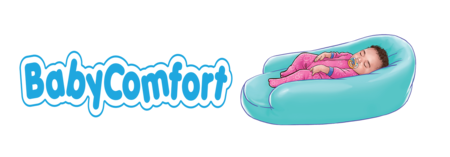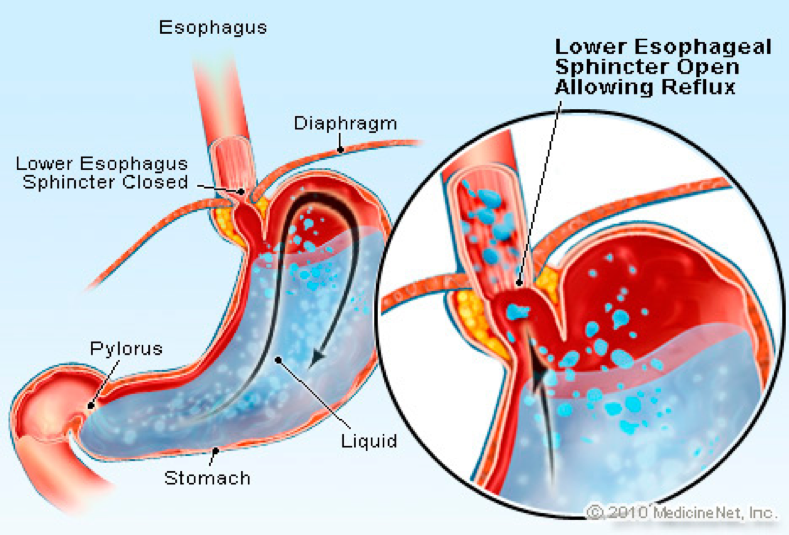Baby spitting up
Baby Spitting Up
Baby spitting up or regurgitation is often called ‘reflux’. It happens when your baby’s stomach contents refluxes or backs up into the food pipe (esophagus). The stomach contents usually, milk or formula, are sometimes regurgitated or vomited out of the mouth. See the image below, courtesy of MedicineNet (2010).
Why is my baby regurgitating or spitting up his milk?
Think of your baby’s stomach as a bottle that has a long narrow neck (esophagus) that leads out to its opening (mouth). When your baby lies down, this bottle is tilted on its side, if the bottle is overfilled with milk, its liquid content can easily flow through the esophagus and travel back out the of mouth. This liquid content may sometimes cause babies to gag or choke when they lay down to sleep right after feeding.
Spitting up or reflux in babies is a normal process that occurs several times a day in healthy infants. It occurs due to a transient relaxation of the lower esophageal sphincter. This sphincter or valve is present at the junction of the esophagus and stomach.
When the valve is closed, it prevents stomach contents from entering back up into the esophagus. The valve, however, relaxes during feeding and swallowing to allow food to enter the stomach. Also, transient relaxations occasionally occur during non-feeding times to allow air to vent upward from the stomach (belching) and secretions to pass down into the stomach. During these times, stomach contents may enter back up into the esophagus.
Most episodes of reflux in healthy infants last less than three minutes after feeding and cause few or no symptoms.
What tests are used to determine reflux?
In babies and infants, a diagnosis of reflux is based on the report of a baby regurgitating or spitting up, and no tests are usually necessary unless reflux is causing other symptoms. When other symptoms are present, it is called Gastroesophageal reflux disease.
If a child is suspected of having Gastroesophageal reflux disease, the tests done will depend upon what is found after a complete medical history and physical examination. The tests may include the following:
• Laboratory testing (blood and/or urine tests)
• X-ray studies to evaluate how well the infant swallows
• A procedure, called an upper endoscopy, to view the lining of the esophagus
How can I prevent my child from spitting up or refluxing?
Most spitting up is normal. You don’t have to do anything. Babies usually spit up once or twice after feedings. If your baby is spitting up more than once after feeding, you may need to consider decreasing the volume you give them at each feeding or space your baby’s feedings further apart.

Other spitting up prevention that your doctor may suggest includes the following:
Spitting up Prevention
1. Feed less volume, but feed more frequently. You may download our free baby feeding app to help you assess the adequate feeding volumes for your baby.
2. Reflux is worse when babies lie flat; you may have to elevate the head of your baby’s bed after feedings.
3. Don’t place your baby down to sleep immediately after feeding. (Hold your baby over your shoulder or in a sitting position for about 15-20 minutes before putting your baby down to sleep.)
4. Avoid compressing your baby’s tummy (abdomen) after feeding.
5. Burp your baby well after feeding.
6. Position your infant in a semi-upright or sitting position during feeding.
7. Ensure a good latch when breastfeeding to minimize the amount of air swallowed.
8. Eliminate your consumption of caffeine and tobacco when breastfeeding.
9. Try using an infant formula thickener such as rice cereal (as suggested by your doctor).
10. Try a cow’s milk-free diet (as suggested by your doctor).
When should I be concerned about reflux?
When your baby is not a “happy spitter’ or has symptoms other than regular spitting up — such as coughing, being irritable, and poor weight gain, then your baby needs to be examined by a doctor. Other symptoms of concern may include the following:
1. Consistent forceful vomiting
2. Yellowish bile in vomit
3. Blood in vomit
4. Onset of vomiting after 6 months of life
5. Failure to thrive
6. Diarrhea
7. Constipation
8. Fever
9. Lethargy
These are some of the factors indicating that your baby’s reflux may now be Gastroesophageal reflux disease and needs further evaluation by your doctor.
What is the treatment for reflux?
Infants with uncomplicated reflux do not require treatment other than the suggestions outlined above in the Spitting up prevention. Many infants with symptoms of reflux will improve, as they get older. By about one year, most infants stop refluxing with the use of conservative measures alone.
When reflux is causing other symptoms such as weight loss, then it is called Gastroesophageal reflux disease, and this may be treated with medications provided by your doctor.

Andrew Faniku MD
Andrew is a committed family man and pediatrician who is passionate about improving your baby’s comfort. In his spare time, he creates acrylic paintings and writes short stories. He is also learning to use social media. Please connect with him:

